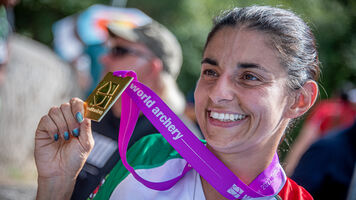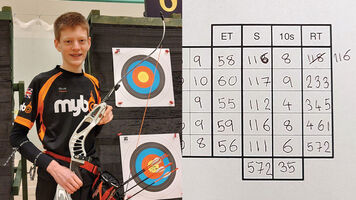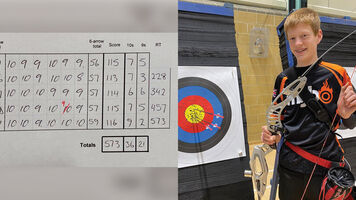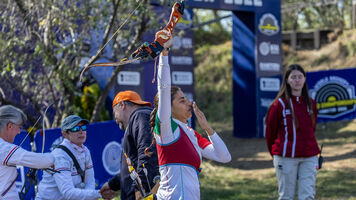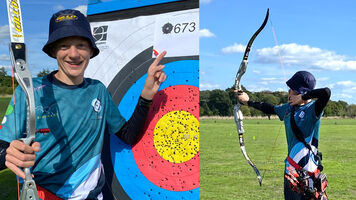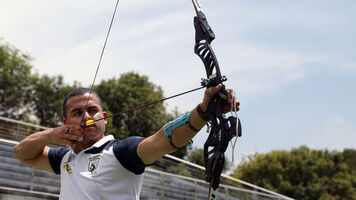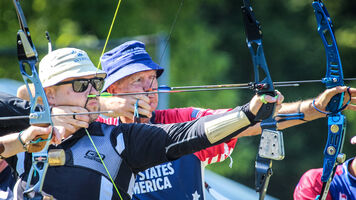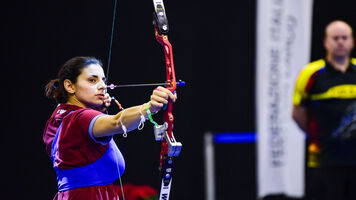A tradition and culture – barebow in Sweden
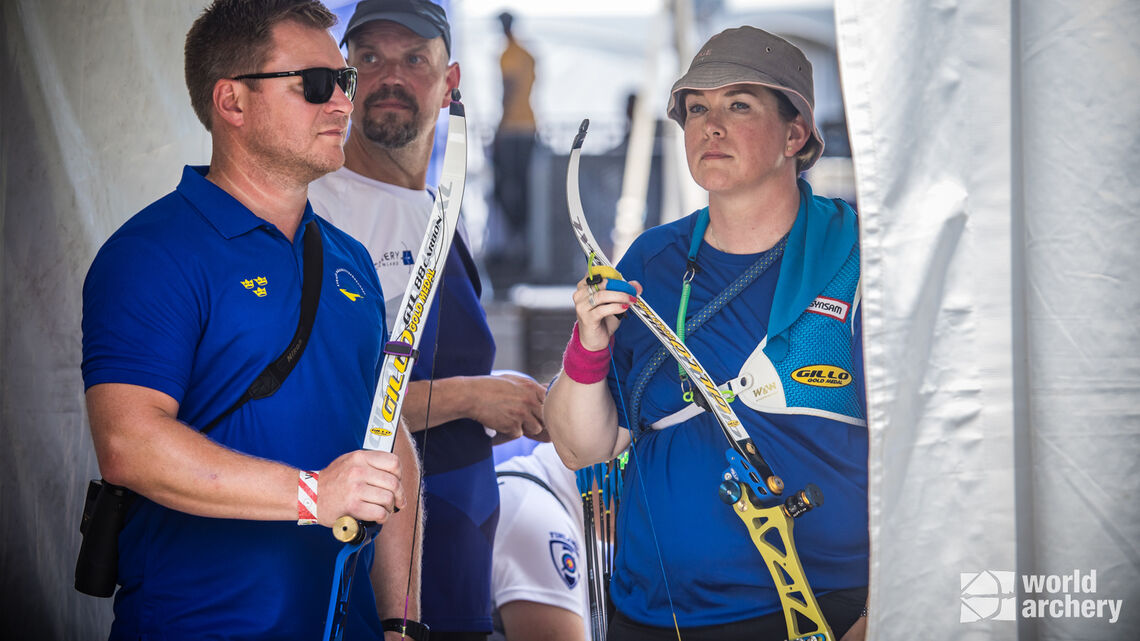
The recently-completed World Games in Birmingham, USA saw Sweden take half of the medals on offer in the barebow events.
Erik Jonsson defeated Leo Pettersson in the all-Swedish men’s final, while Lina Bjorklund won bronze in the women’s competition.
Jonsson’s gold was his third after topping the podium in 2001 and 2005, while Bjorklund completed her full set of medals, having won gold in 2013 and silver in 2017.
“It is a long tradition,” says the 46-year-old Jonsson about why Sweden has had so much success for so long with the bowstyle.
“We start in barebow when we begin at clubs and we have a pretty good tradition.”
Grassroots exposure won’t hurt, sure – but elite success has also played its part. Nothing is more inspiring than seeing medals being won – and those medal winners helping to nurture the next generation.
“Since we are very good at it, we try and help other archers,” says Bjorklund. “They can always call and ask us things and we will help them. They will get the help they need. They look up to us and we help them.”
The fourth Swedish barebow archer in Alabama, Stine Asell, agrees.
“Maybe it is a tradition but we also get influenced by each other,” adds the 56-year-old. “In Sweden, we have role models to look up to. Maybe that is the key? Maybe archers want to be as good as they are?”
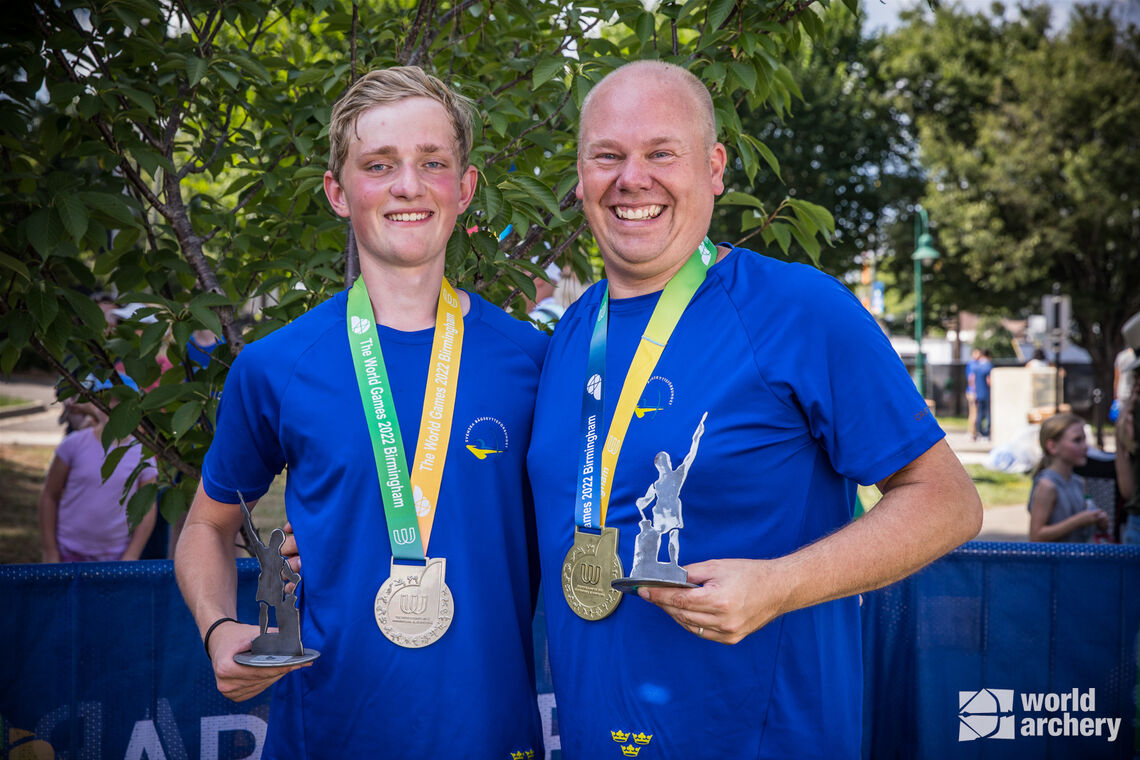
One of those who has been doing the looking up is Leo Pettersson.
At 18, he was the youngest member of the Swedish barebow team at the World Games by 24 years. He’s quickly becoming someone to idolise himself, not least since making the spotlight with his performance at the Lancaster Archery Classic indoors earlier this year.
“There is a culture of barebow in Sweden. Most of the people start with barebow at clubs, plus we have people like Erik or Lina,” says Pettersson. “During the first two years of my career, my goal in archery was to go for the Olympic Games but then my goal changed to become a better archer than Erik and to win more world championships than him.”
“It is fun to be the youngest archer,” he adds. “We are just a great family with people of different ages.”
In that diverse group, Asell recognises one unifying thought: to inspire the medallists of tomorrow.
“When they are kids, it’s important to help them, not push them, but give them confidence to shoot,” she says. “We take care of them when they are young.”
Jonsson has won the World Archery Field Championships three times, as well as matching Morgan Lundin’s record three wins at the World Games in Birmingham. He’s seen the sport ebb and flow over the years – but recognises that, right now, barebow is in a healthy spot.
“We had a bunch of archers shooting really high scores in the late 1990s and early 2000s, then it went down a little now but it’s getting back up again,” he says. “Now World Archery has introduced world records for indoor and target the discipline is growing really much all over the world in Asia, the USA, for example.”
“It’s the fastest growing discipline now.”


